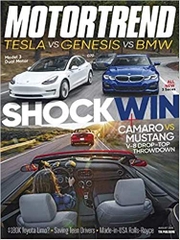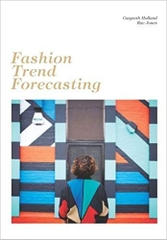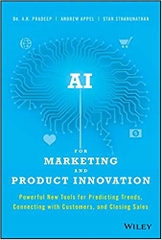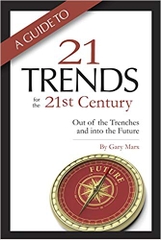-
-
-
Tổng tiền thanh toán:
-
-
Thông tin
-
Tìm sách theo yêu cầu
“Ridley writes with panache, wit, and humor and displays remarkable ingenuity in finding ways to present complicated materials for the lay reader.” — Los Angeles Times
In a bold and provocative interpretation of economic history, Matt Ridley, the New York Times-bestselling author of Genome and The Red Queen, makes the case for an economics of hope, arguing that the benefits of commerce, technology, innovation, and change—what Ridley calls cultural evolution—will inevitably increase human prosperity. Fans of the works of Jared Diamond (Guns, Germs, and Steel), Niall Ferguson (The Ascent of Money), and Thomas Friedman (The World Is Flat) will find much to ponder and enjoy in The Rational Optimist.
Product Details
- Series: P.S.
- Paperback: 480 pages
- Publisher: Harper Perennial; Reprint edition (June 7, 2011)
- Language: English
- ISBN-10: 0061452068
- ISBN-13: 978-0061452062
- Product Dimensions: 8 x 5.4 x 1.2 inches
- Shipping Weight: 12.8 ounces (View shipping rates and policies)
- Average Customer Review: 4.3 out of 5 stars See all reviews (210 customer reviews)
- Amazon Best Sellers Rank: #12,418 in Books (See Top 100 in Books)
- #30 in Books > History > World > Civilization & Culture
- #31 in Books > History > Ancient > Early Civilization
- #35 in Books > Business & Money > Economics > Economic History
Editorial Reviews
From Publishers Weekly
Ideas have sex, in Ridley's schema; they follow a process of natural selection of their own, and as long as they continue to do so, there is reason to retire apocalyptic pessimism about the future of our species. Erstwhile zoologist, conservationist, and journalist, Ridley (The Red Queen) posits that as long as civilization engages in exchange and specialization, we will be able to reinvent ourselves and responsibly use earthly resources ad infinitum. Humanity's collective intelligence will save the day, just as it has over the centuries. Ridley puts current perceptions about violence, wealth, and the environment into historical perspective, reaching back thousands of years to advocate global free trade, smaller government, and the use of fossil fuels. He confidently takes on the experts, from modern sociologists who fret over the current level of violence in the world to environmentalists who disdain genetically modified crops. An ambitious and sunny paean to human ingenuity, this is an argument for why ambitious optimism is morally mandatory. (June)
Copyright © Reed Business Information, a division of Reed Elsevier Inc. All rights reserved. --This text refers to the Hardcover edition.
Copyright © Reed Business Information, a division of Reed Elsevier Inc. All rights reserved. --This text refers to the Hardcover edition.
From Booklist
Science journalist Ridley believes there is a reason to be optimistic about the human race, and he defies the unprecedented economic pessimism he observes. His book is about the rapid and continuous change that human society experiences, unlike any other animal group. Ideas needed to meet and mate for culture to turn cumulative, and “there was a point in human pre-history when big-brained, cultural, learning people for the first time began to exchange things with each other and that once they started doing so, culture suddenly became cumulative, and the great headlong experiment of human economic ‘progress’ began.” Participants in the exchanges improved their lives by trading food and tools. Ridley believes it is probable that humanity will be better off in the next century than it is today, and so will the ecology of our planet. He dares the human race to embrace change, be rationally optimistic, and strive for an improved life for all people. --Mary Whaley --This text refers to the Hardcover edition.
Most Helpful Customer Reviews
252 of 264 people found the following review helpfulBy Kevin Currie-Knight TOP 500 REVIEWERVINE VOICE on May 22, 2010
Format: Hardcover Vine Customer Review of Free Product ( What's this? )
56 Comments Was this review helpful to you? YesNoMatt Ridley's The Rational Optimist is a history of progress based on a simple but unpopular idea: that specialization and markets are the prime movers of progress. In fact, Ridley suggests in his introduction that the answer to the perennial "What makes humans unique?" question is our unique ability to specialize and trade. Instead of catching our own food, making our own shelter, etc (as other animals do), we humans have created a system where everyone can specialize and trade with others who specialize in other things. This means that those best at making houses make houses, those best at making food make food, and by trading, we can each benefit from that which others do and vice versa. Self-reliance equals subsistence: interdependence through trade equals ingenuity and a boom in living standards.
"What?!" you say. What about Rousseau, Marx, Ehrlich, Marcuse, and all of those other critics of society! What about all the stuff we hear about how capitalism exploits the poor, reduces living standards, rapes the environment, etc, etc. The first few chapters of Ridley's book are devoted to showing that, on all fronts, markets have actually produced higher living standards FOR ALL (and especially the poor, as also shown in Sowell'sEconomic Facts and Fallacies), MORE leisure time for all, and - here's the most surprising - better environmental conditions.
The next several chapters are a history of how this progress happened. To be honest, these chapters may be the most dry as they are very detail-laden and repetitive in that they stress the same theme across time - that specialization leads to ingenuity and progress.Read more ›
"What?!" you say. What about Rousseau, Marx, Ehrlich, Marcuse, and all of those other critics of society! What about all the stuff we hear about how capitalism exploits the poor, reduces living standards, rapes the environment, etc, etc. The first few chapters of Ridley's book are devoted to showing that, on all fronts, markets have actually produced higher living standards FOR ALL (and especially the poor, as also shown in Sowell'sEconomic Facts and Fallacies), MORE leisure time for all, and - here's the most surprising - better environmental conditions.
The next several chapters are a history of how this progress happened. To be honest, these chapters may be the most dry as they are very detail-laden and repetitive in that they stress the same theme across time - that specialization leads to ingenuity and progress.Read more ›
215 of 245 people found the following review helpfulBy Steve Summers VINE VOICE on May 8, 2010
Format: Hardcover Vine Customer Review of Free Product ( What's this? )
29 Comments Was this review helpful to you? YesNoFirst, the GOOD NEWS: the sky isn't falling! The world is actually improving dramatically and the pace is quickening. There are abundant facts to prove it. The BAD NEWS predicted isn't true after all. The not-so-good news is that good news doesn't sell newspapers or prime-time ads. So we'll keep on hearing that doomsday drumbeat of horrific predictions from the media, all of it certified by officials of academia and government with an obvious agenda in the vision of impending environmental collapse which can only be averted by comparably drastic intervention. We have a glut of popular books and articles feeding these fears with plausible evidence for the demise of civilization or the planet, but a critical shortage of books like "The Rational Optimist" which challenge that evidence, describe its pathologies, and show where those disastrously coercive interventions will lead, and what they'll cost in human terms. So why risk ostracism in cocktail-party conversation by reading a persuasive contrarian essay which proclaims a heretical optimism in its title?
Well, one reason might be the pleasures of an utterly readable book. Unlike talk-show polemicists, Matt Ridley uses good-natured eloquence, serious erudition and incisive wit to deflate the imminent-disaster scenarios which dominate our evening news, academic and political discourse. Despite its length, the book is remarkable for its brevity and the sheer quotability of its prose. (A reader cribbing zinger quotes will soon have writer's cramp.)
Another reason might be the challenge of unfamiliar ideas, of cleaning the mental attic of the baggage left by cultural osmosis. No book can guarantee final truth, but a fresh perspective can provide plenty of creative stimulation for a skeptical mind.Read more ›
Well, one reason might be the pleasures of an utterly readable book. Unlike talk-show polemicists, Matt Ridley uses good-natured eloquence, serious erudition and incisive wit to deflate the imminent-disaster scenarios which dominate our evening news, academic and political discourse. Despite its length, the book is remarkable for its brevity and the sheer quotability of its prose. (A reader cribbing zinger quotes will soon have writer's cramp.)
Another reason might be the challenge of unfamiliar ideas, of cleaning the mental attic of the baggage left by cultural osmosis. No book can guarantee final truth, but a fresh perspective can provide plenty of creative stimulation for a skeptical mind.Read more ›
31 of 37 people found the following review helpfulBy J. Dretler on July 14, 2010
Format: Hardcover Verified Purchase
Differentiation of individual activity, specialization and trade are the activities that have enabled humankind to overcome obstacles in the past and advance at a rapid pace. The future should be no different.
According to Matt Ridley, trade was and is the essential element in human progress. He suggests that the first farmers were already traders and used their static location and accumulated inventory to meet hunter-gatherer demand. He also credits the farmer as the creator of property rights. Hunter-gatherer societies are egalitarian sharing the hunt and enforcing non-compliance. A farmer who plants a field expects to harvest it and store or trade the surplus. This, Ridley posits was the origin of private wealth.
Ridley maintains that progress is dependent on idea sharing. As population density increases, the availability of new ideas and differentiation of occupation allows those with extra time to make use of these ideas.
Twentieth century collectivist bias leads one to ask "who was in charge" looking for a central initiator of policy. Ridley suggests that the world is a complex adaptive system, where trade and progress emerged from the interaction of individuals. It was an evolutionary rather than a planned process.
He recounts historical examples of institutional and industrial stagnation from the Bronze Age to British Rail and the U.S. Postal Service. What Ridley says they have in common is an attitude that rewards caution and discourages experiment. A planned economy requires perfect knowledge. The possibility of new knowledge makes a steady state or economic equilibrium model invalid.
He says the Dark Ages were a massive back to the land hippie movement minus the trust funds, similarly the Maoist Cultural Revolution.Read more ›
According to Matt Ridley, trade was and is the essential element in human progress. He suggests that the first farmers were already traders and used their static location and accumulated inventory to meet hunter-gatherer demand. He also credits the farmer as the creator of property rights. Hunter-gatherer societies are egalitarian sharing the hunt and enforcing non-compliance. A farmer who plants a field expects to harvest it and store or trade the surplus. This, Ridley posits was the origin of private wealth.
Ridley maintains that progress is dependent on idea sharing. As population density increases, the availability of new ideas and differentiation of occupation allows those with extra time to make use of these ideas.
Twentieth century collectivist bias leads one to ask "who was in charge" looking for a central initiator of policy. Ridley suggests that the world is a complex adaptive system, where trade and progress emerged from the interaction of individuals. It was an evolutionary rather than a planned process.
He recounts historical examples of institutional and industrial stagnation from the Bronze Age to British Rail and the U.S. Postal Service. What Ridley says they have in common is an attitude that rewards caution and discourages experiment. A planned economy requires perfect knowledge. The possibility of new knowledge makes a steady state or economic equilibrium model invalid.
He says the Dark Ages were a massive back to the land hippie movement minus the trust funds, similarly the Maoist Cultural Revolution.Read more ›
XEM THÊM TẠI AMAZON.COM
- Thông tin chi tiết
- Mục lục
- Đọc thử
- Đọc thử
- Đánh giá & bình luận của người mua
- Những cuốn sách cùng chủ đề hoặc có liên quan
Link: http://www.amazon.com/Rational-Optimist-Prosperity-Evolves-P-S/dp/0061452068/
Tại web chỉ có một phần nhỏ các đầu sách đang có nên nếu cần tìm sách gì các bạn có thể liên hệ trực tiếp với Thư viện qua Mail, Zalo, Fanpage nhé
Đăng ký nhận tin qua email
Hãy đăng ký ngay hôm nay để nhận được những tin tức cập nhật mới nhất về sản phẩm và các chương trình giảm giá, khuyến mại của chúng tôi.












